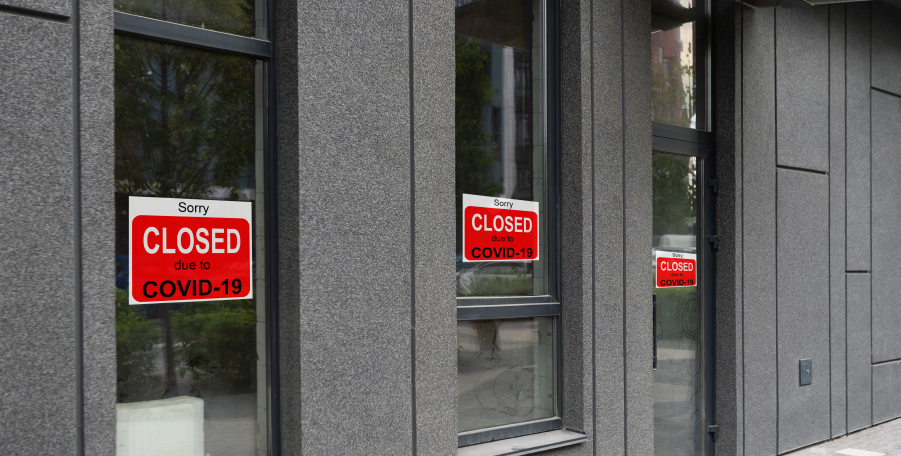Claims, loss adjusting & ethics: top tips on how to make the right ethical decisions
24th March 2021

Integrity & trust are key for any insurer to retain good relationships with current & potential new customers. Unethical decisions can destroy a company’s reputation in a matter of a few seconds. Dr Marc Sweeney, our Director responsible for training and quality in our Ireland property division, reflects on the role of ethics in Loss Adjusting, why it’s so important, what good looks like, and he shares his top tips on how to approach an ethical dilemma.
The key purpose of our loss adjusting and claims handling services is to bring value to our clients and their policyholders. Although unethical decisions may sometimes appear to bring short-term gains for clients, these decisions are very likely to bring long-lasting reputational damage for the business and for our sector. The key to an equal playing field in our insurance industry is determined by whether people act ethically or not.
What does a good ethical decision look like?
The first step to understand what a good ethical decision looks like is to consider conflicts of interest. When we know if there is a conflict of interest, the second step is to understand what impact this has on our ability to perform our responsibilities. The second is to understand the assumptions that you bring to any given situation and how these are influencing your decision-making.
Third, we can act ethically only when we understand the limit of our own competence. If a loss adjuster for example believes that they’re not fully equipped to deal with a certain matter, but goes ahead and deals with it anyway, this is unethical as they’re acting outside their competence and their advice to their client will fall short of what the client ought to be entitled to expect.
Ethical issues in claims and loss adjusting
When working on claims, we’re often put in situations that can be challenging ethically. If a policyholder underclaims for example, it may be tempting to simply move on and give them the outcome they appear to want. It’s the loss adjuster’s responsibility to talk the policyholder through the process and outline what their entitlement is.
Approaching an ethical dilemma
The most essential element we bring when we approach an ethical dilemma is experience. In a challenging situation, we seek support from a peer or a manager who may have more experience and can help guide us in the ethical challenge and provide key points to consider.
If an ethical situation is difficult to deal with after seeking advice from a peer or manager, we may look to codes of ethics. Some businesses have their own codes, but there is also helpful advice and guidance available from professional associations such as the Chartered Institute of Loss Adjusters or the Chartered Insurance Institute.
Codes of ethics from those institutes provide answers and help. If the situation is particularly difficult, even after looking at the codes of ethics, it’s important to continue discussions until all points of view are heard and every possible scenario or outcome has been covered.
Final thoughts
When working in insurance, we have a duty to ourselves to make sure we are acting within the limits of our own knowledge and competence. If we ever find ourselves in difficult ethical positions, it’s important that we raise the issue and share the problem. It’s important to remember that it’s never too late to seek advice on an issue and ask for help.
Particularly for people at the start of their career, it can be quite difficult to be vocal about something that doesn’t seem right. Managers have a responsibility to make sure that everybody’s voices are heard, and provide mentoring to junior colleagues to help them express their point of view.
For more information, please see Dr Marc Sweeney’s webinar: ‘Situating Ethics in Professional Practice – Reflexivity in Practice’ or contact Marc on marc.sweeney@davies-group.com.
Related Articles
-
- Article
- Claims Solutions
A welcome reduction in personal injury awards in Ireland
The cost of litigation in Ireland has been a source of…
-
- Acquisition
- Article
- Claims Solutions
Davies announces expansion of US specialist claims TPA & adjusting capabilities through the acquisition of The Littleton Group
LONDON, UK – 09 March 2021 – Davies, the leading specialist professional services and technology business, serving…
-
- Acquisition
- Article
- Claims Solutions
Davies adds home emergency expertise to its UK claims platform with acquisition of NPA 24:7
LONDON, UK – 03 March 2021 – Davies, the leading specialist professional services and technology business,…
-
- Article
- Claims Solutions
Preparing for a storm of business interruption claims: what impact is it likely to leave on our insurance industry?
Tens of thousands of small businesses across the UK will now…



